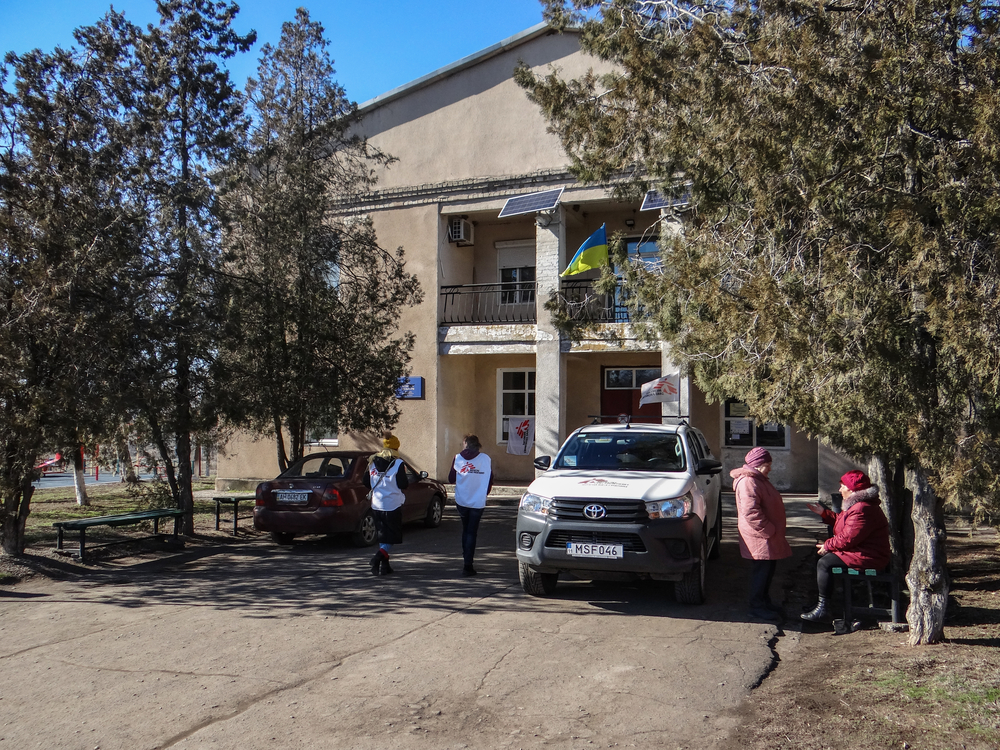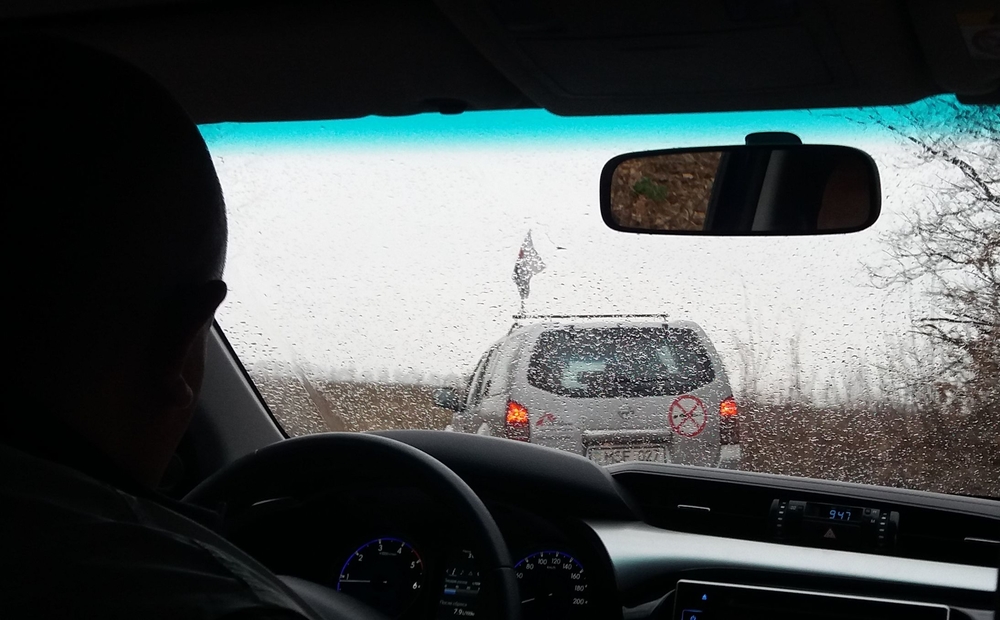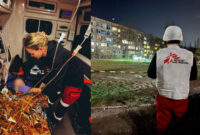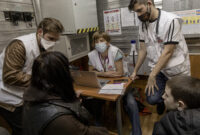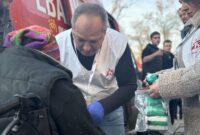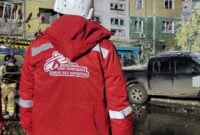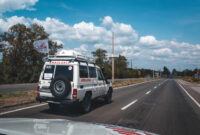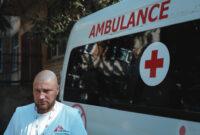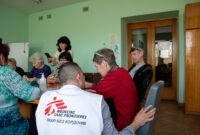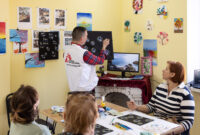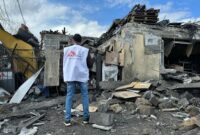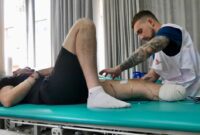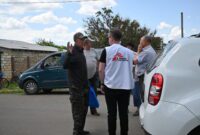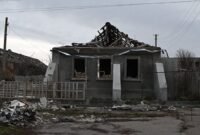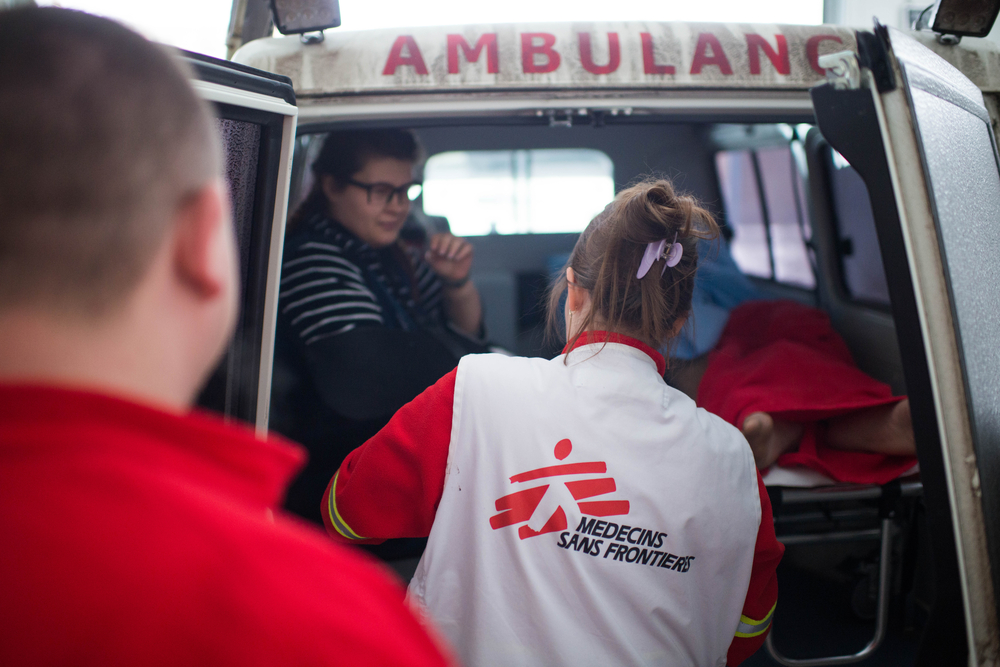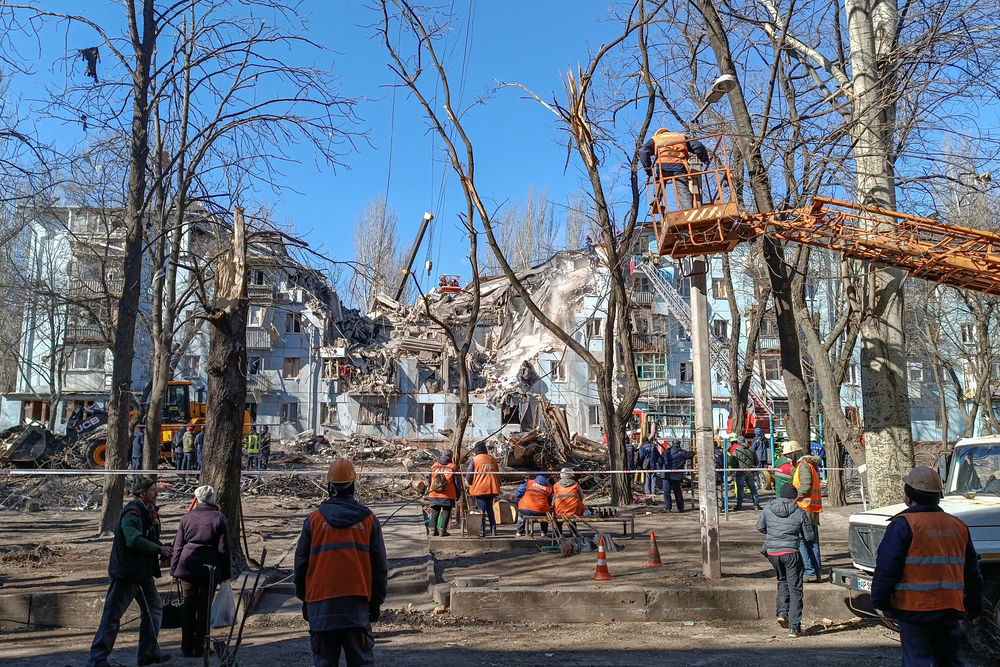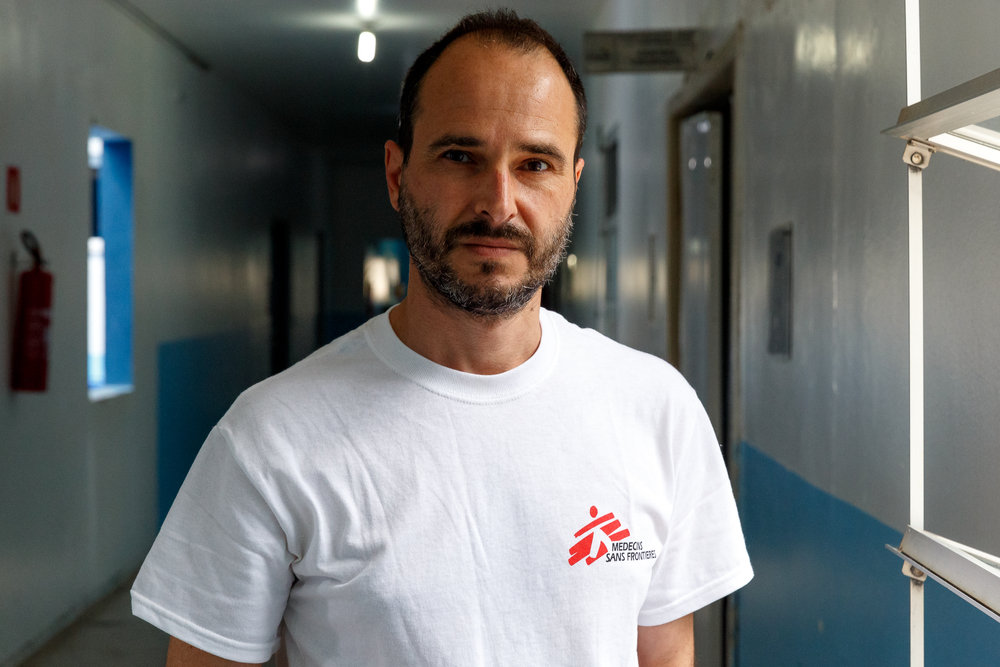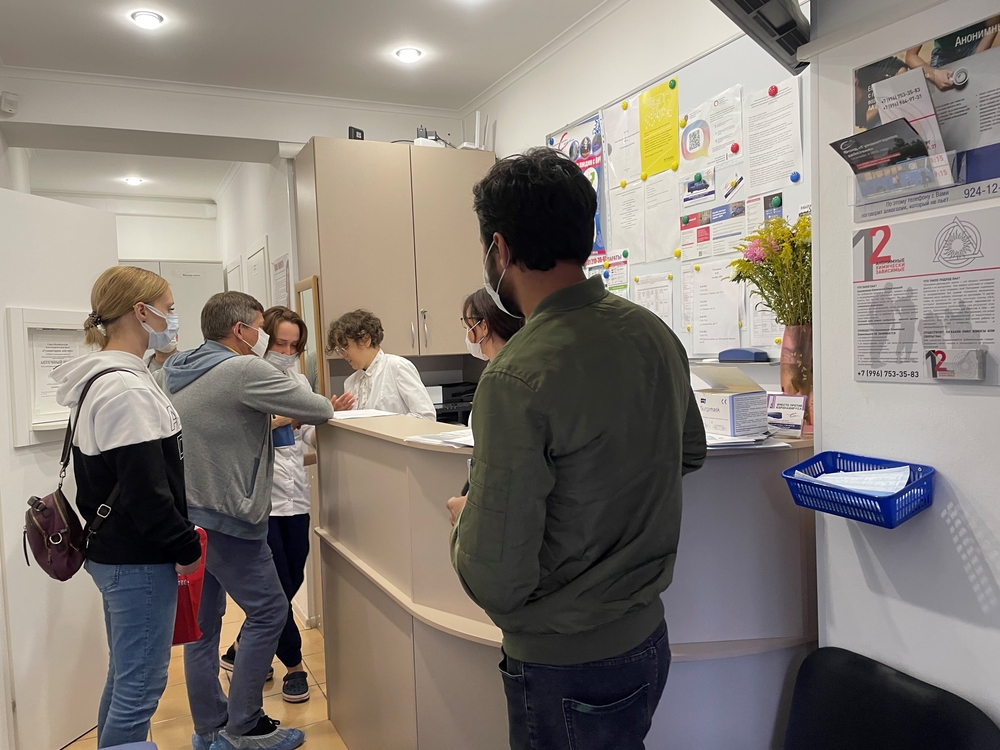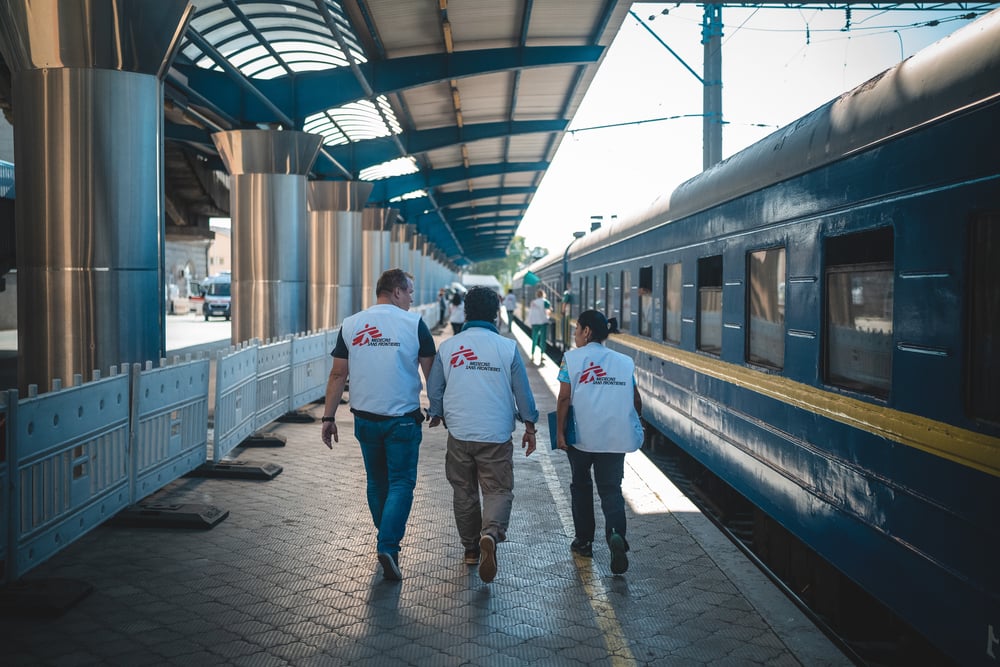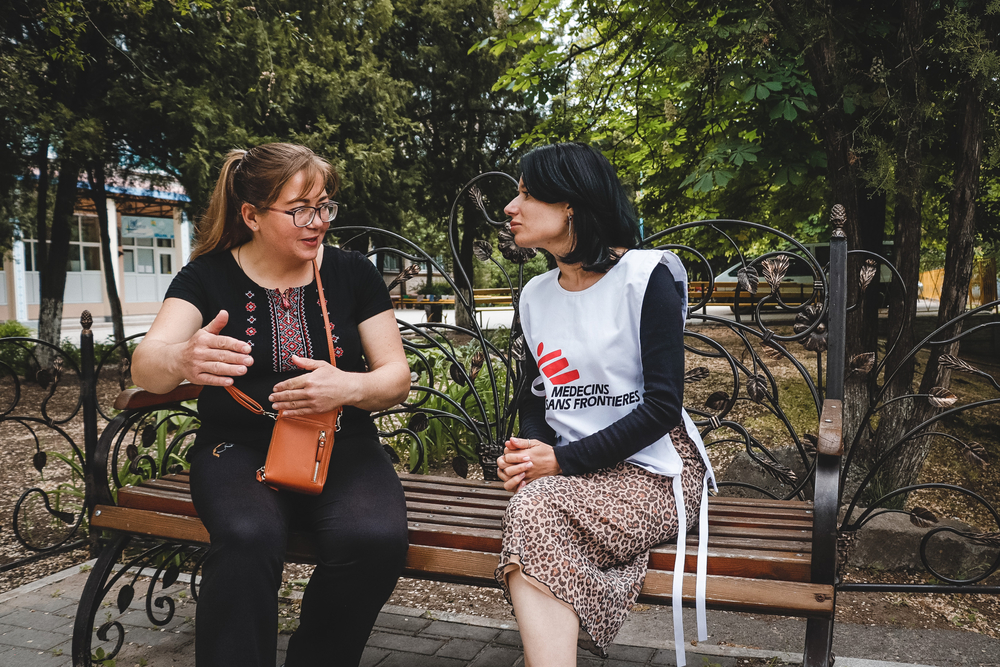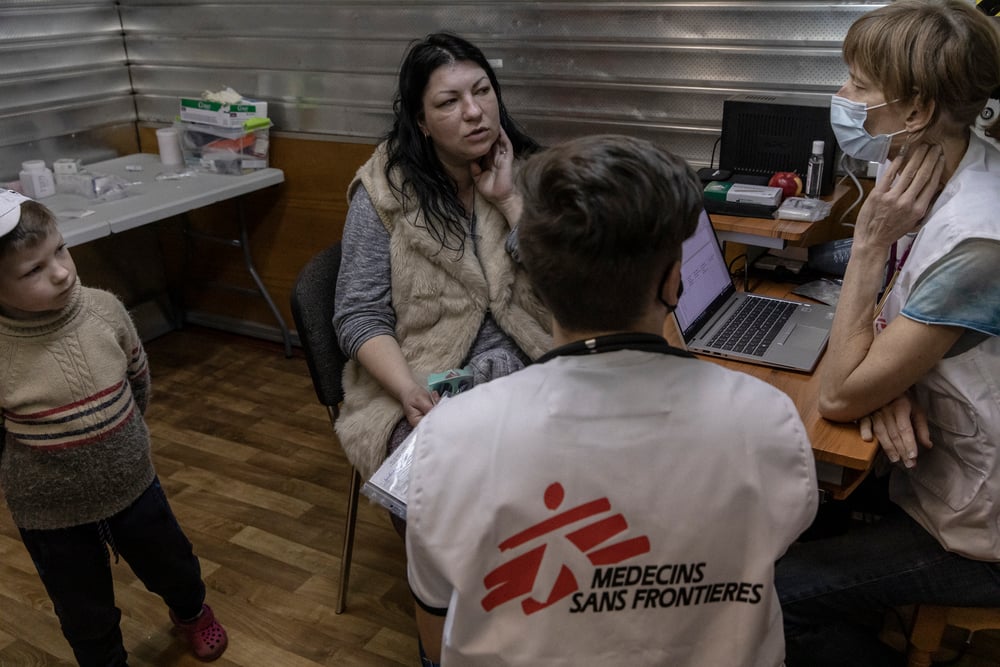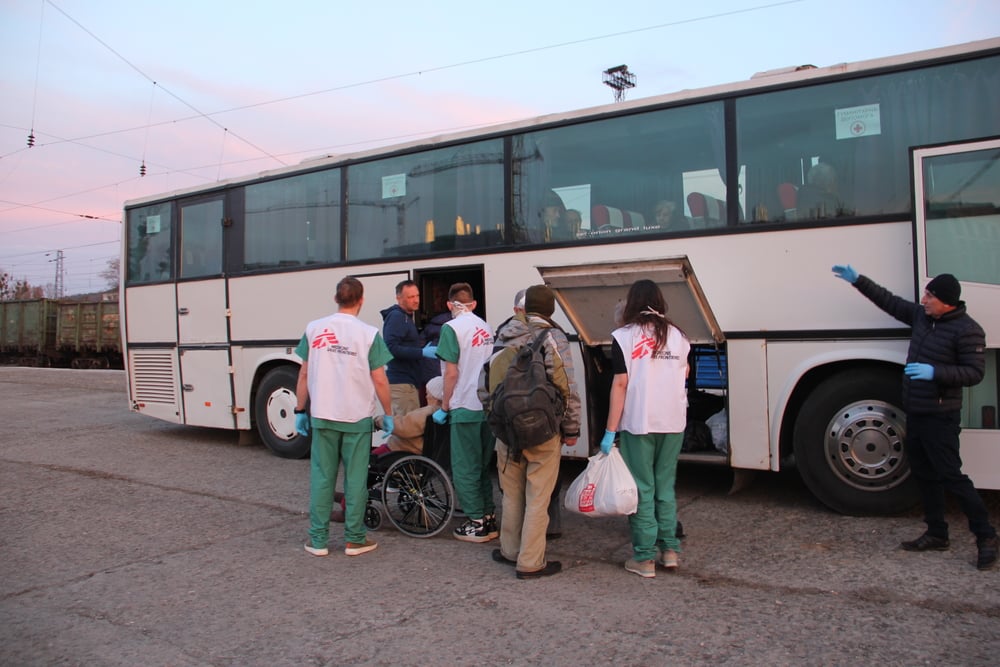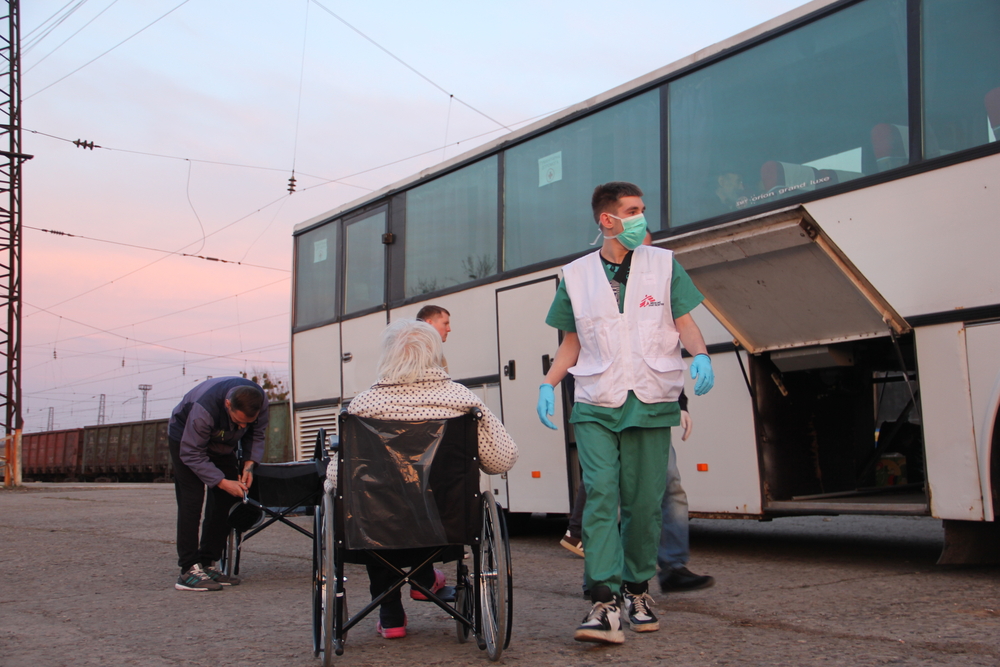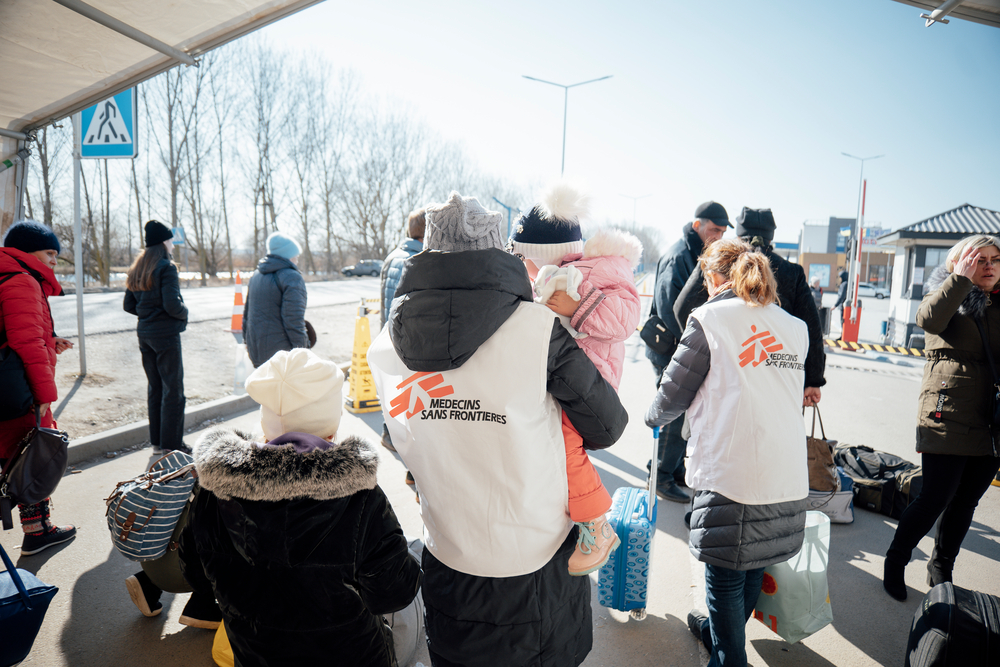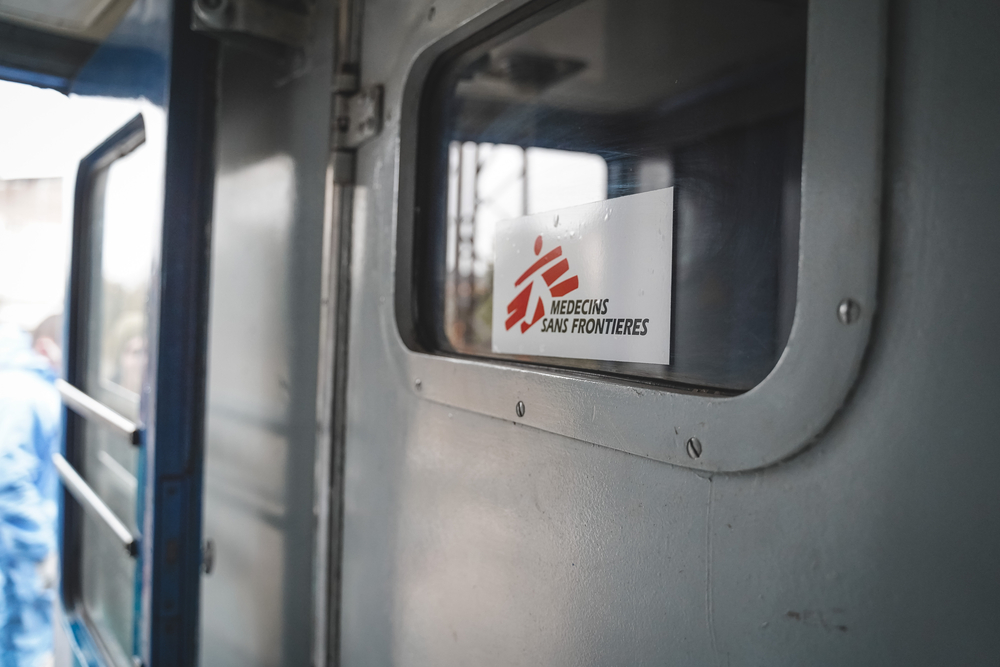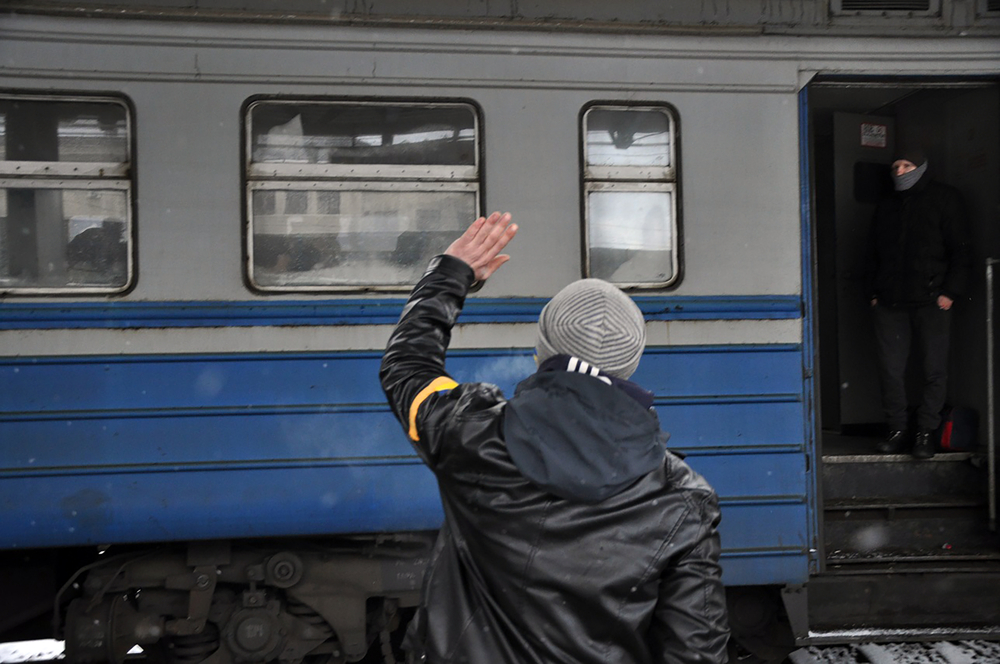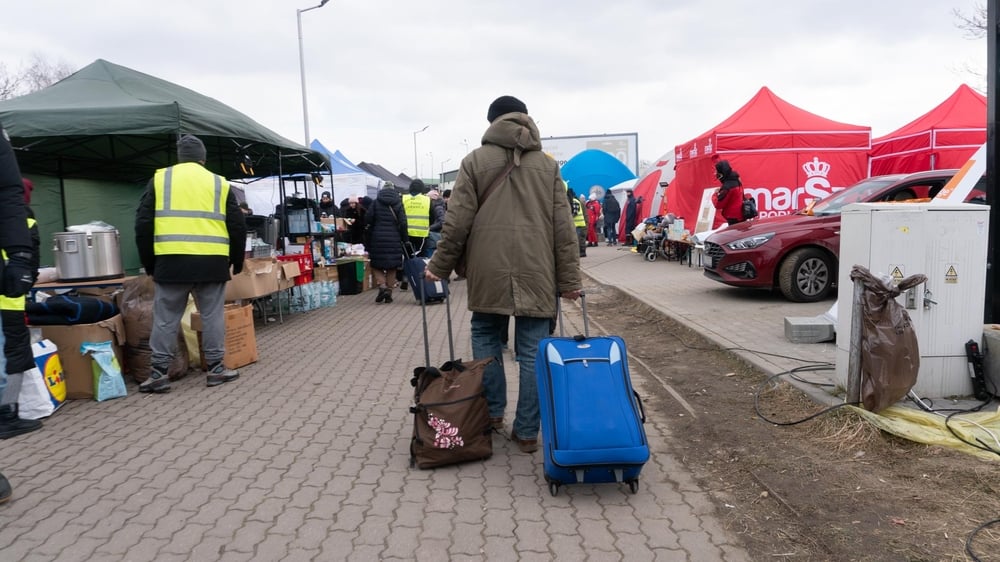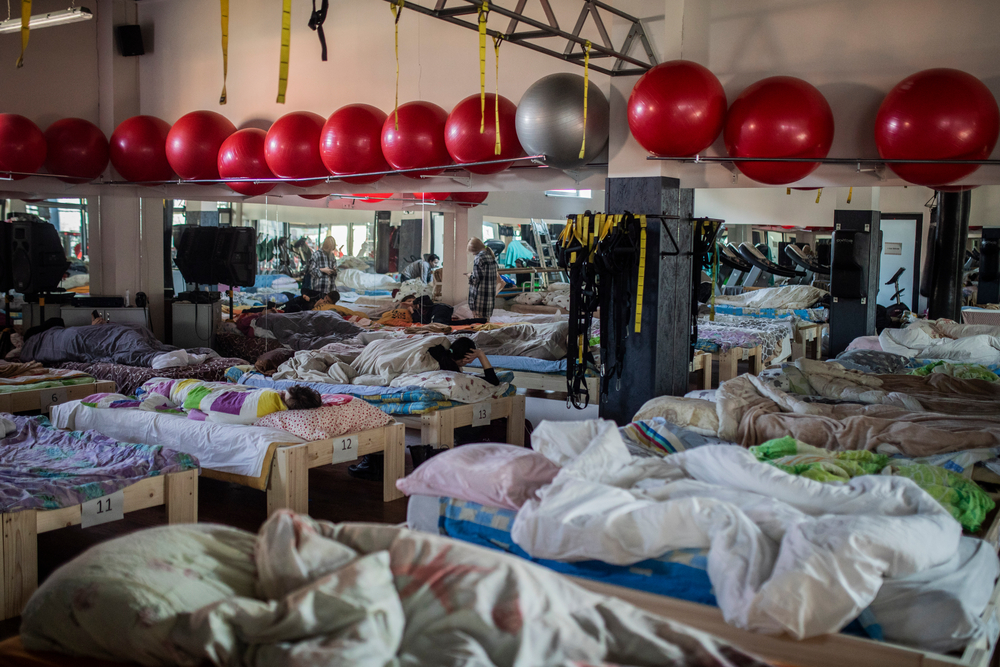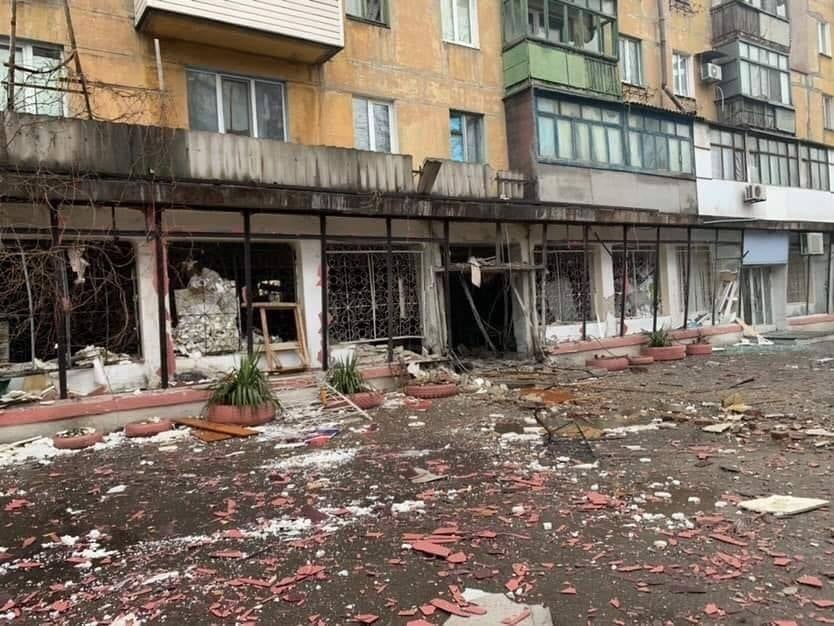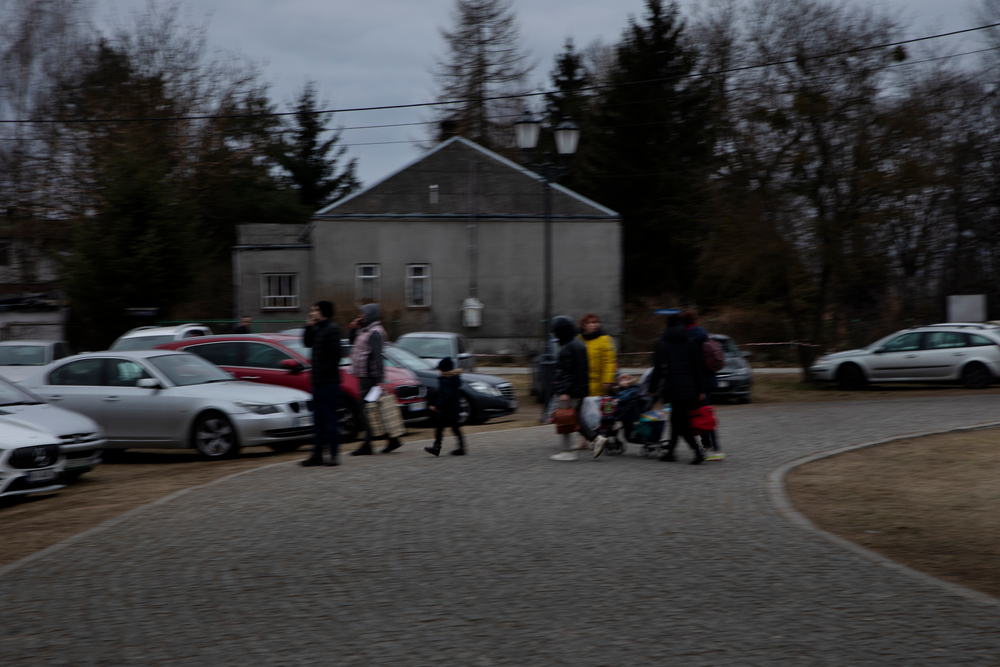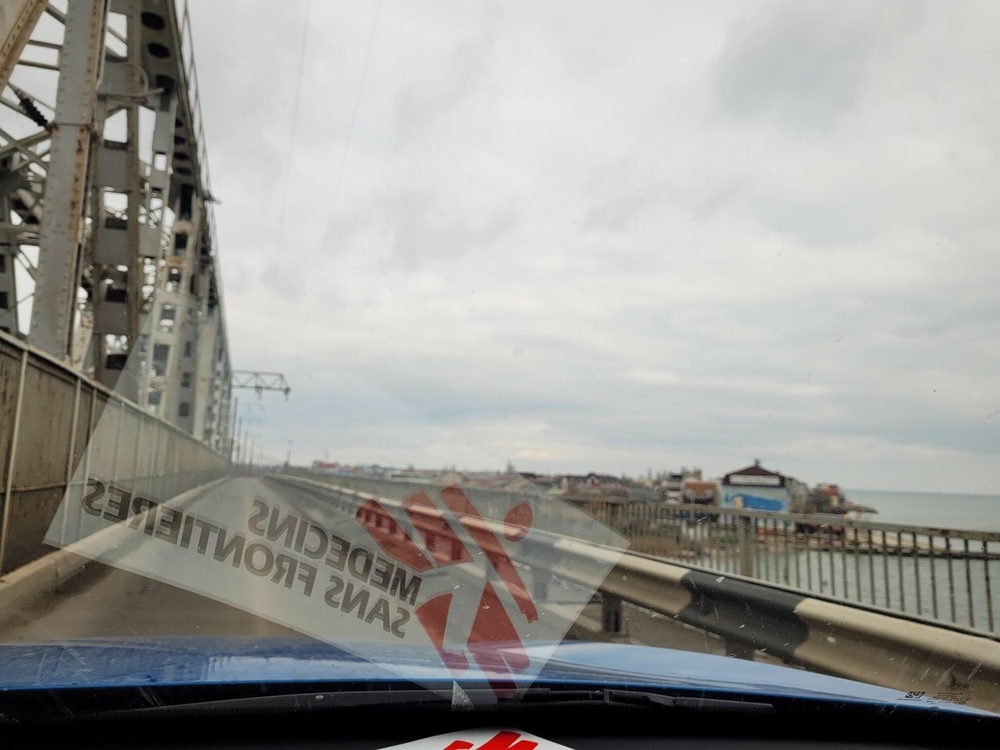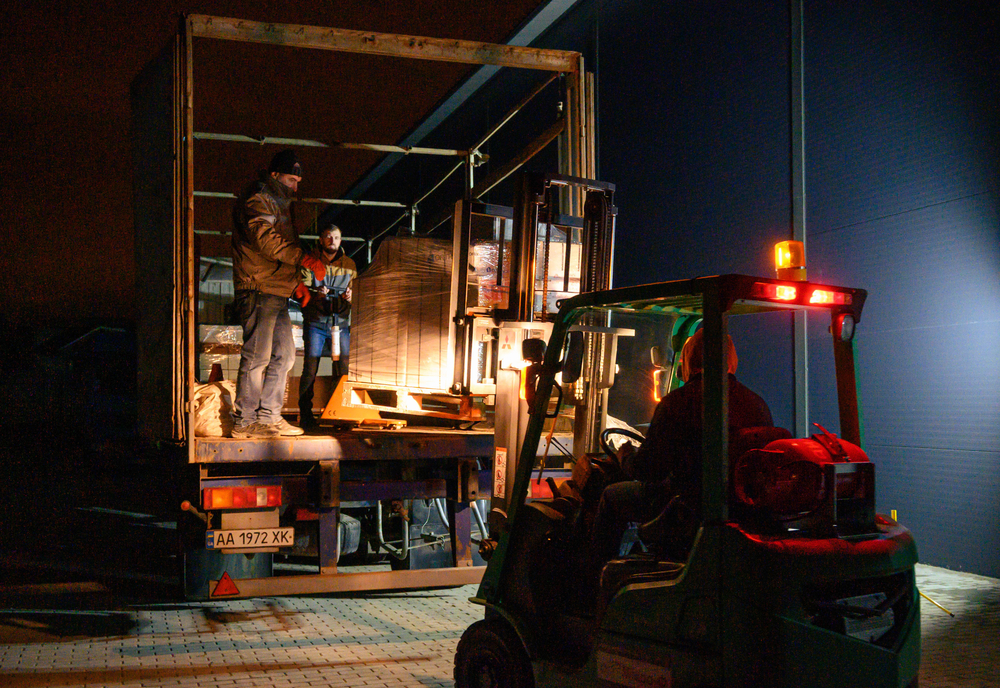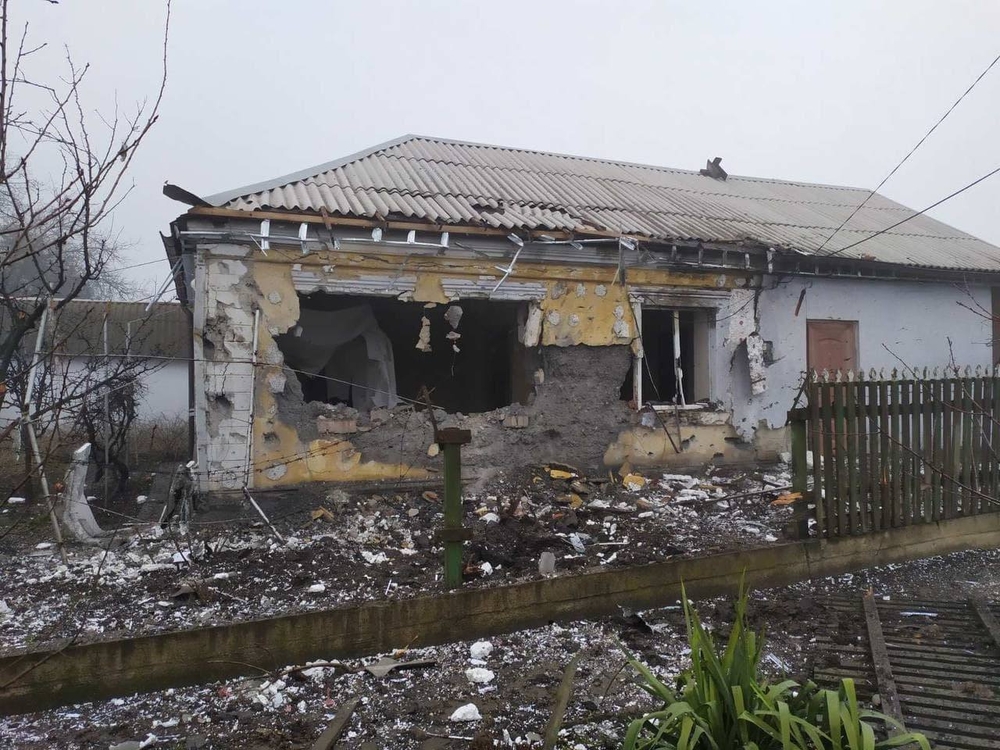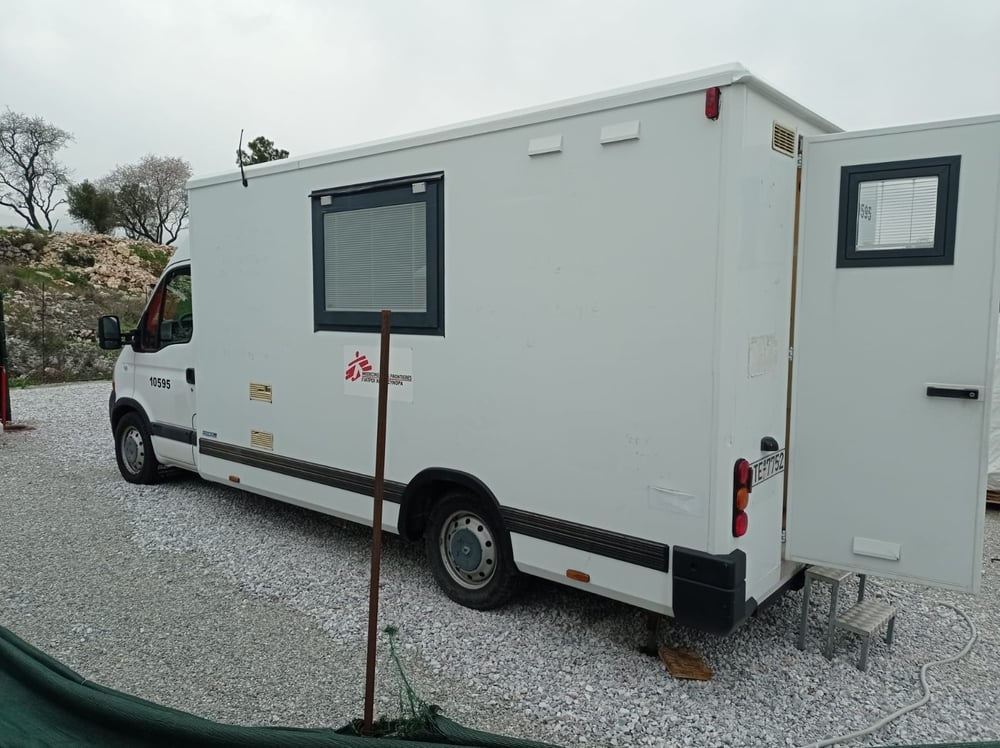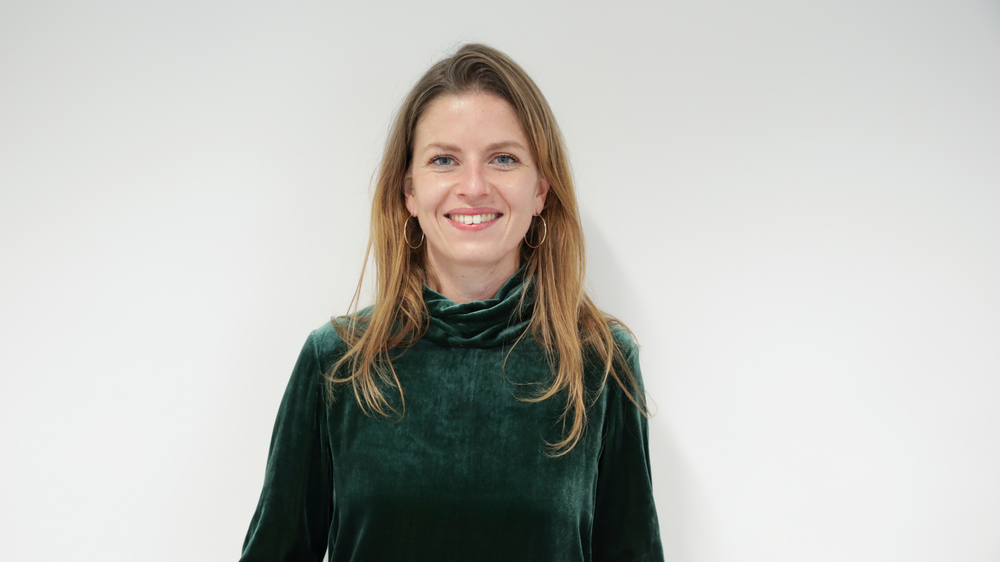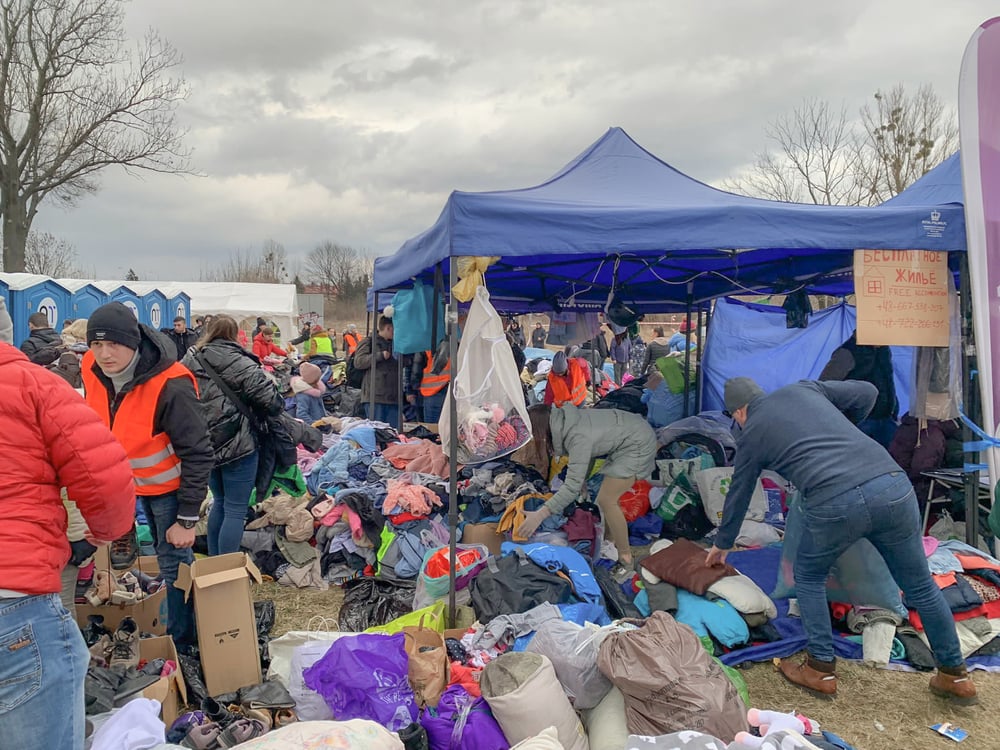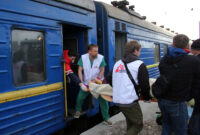MSF statement on Ukraine
Doctors Without Borders/Médecins sans Frontières (MSF)’s teams remain in Ukraine, and we are currently seeking ways to adapt our response as the situation evolves.
We are deeply worried about the consequences of the conflict for Ukrainian people and communities. We see on the roads that tens of thousands of people are frightened and on the move.
UPDATE #Ukraine Message de notre directeur-général @Stephen_Cornish
“Les besoins étaient déjà élevés, et nous sommes inquiets de l’impact que des combats prolongés pourraient avoir sur les patients”@MSF_Ukraine @MSFPlus d’infos : https://t.co/6Lh5lBtwAK pic.twitter.com/9sZB3tiHtL
— MSF Suisse (@MSF_Suisse) February 26, 2022
The drastic change in context means we have had to take the painful decision to halt our activities, which included HIV care in Severodonetsk, tuberculosis (TB) care in Zhytomyr, and improving health care access in Donetsk in eastern Ukraine, where we have been providing much-needed health care to conflict-affected communities. Although these programs have now mostly stopped, we did all we could to ensure some continuity of care for our patients. The needs were already high as people had been living through more than 8 years of conflict, and we are worried about the impact prolonged fighting could have on patients, many of whom are elderly and suffer from chronic diseases. Immediately before the escalation of tensions, we were in contact with several hospitals in Donetsk and Luhansk oblasts to provide training in emergency medicine and surgical preparedness, and yesterday, our team provided one mass casualty kit to a hospital in Mariupol. As hostilities continue, assuring people’s access to health care and medicines will be critical.
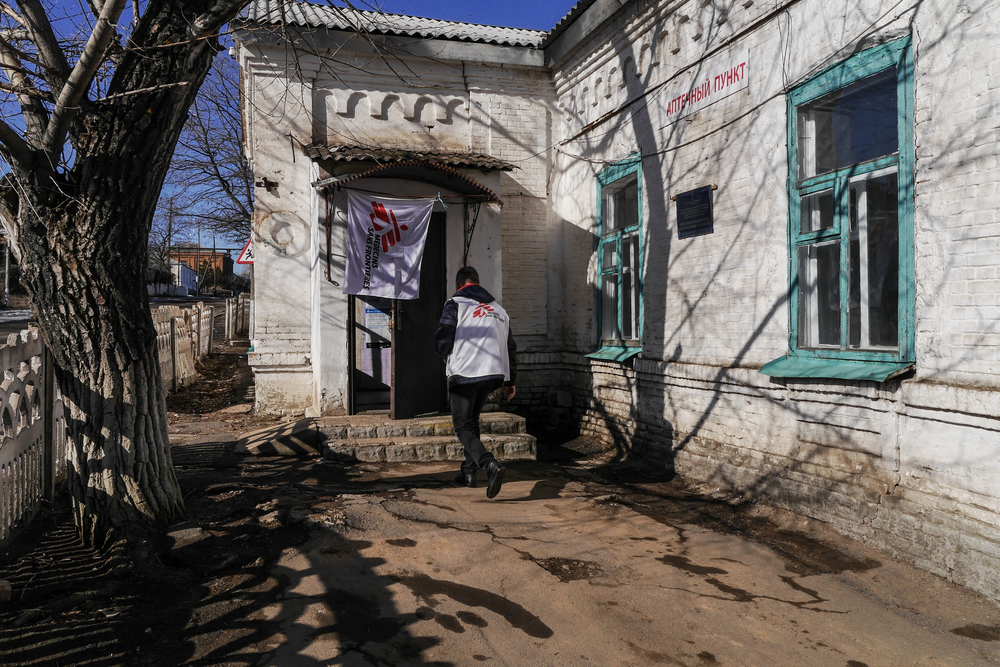
Our teams are looking into how they can adapt MSF’s activities to respond.
The situation is fast-evolving, so we are mobilizing general emergency-preparedness response to be ready for a variety of potential needs. Our teams in Belarus and Russia stand ready to provide humanitarian assistance if needed and we are looking to send teams to other neighbouring countries to be ready on stand-by, either for response in Ukraine or to provide humanitarian medical assistance to refugees seeking asylum abroad. Our supply centres are currently working on readying medical kits for rapid dispatch. We will need to see over the coming period what access will be possible in a safe and impartial manner for humanitarian assistance.
